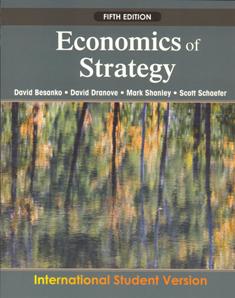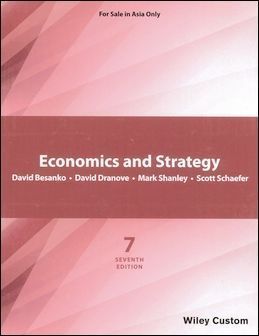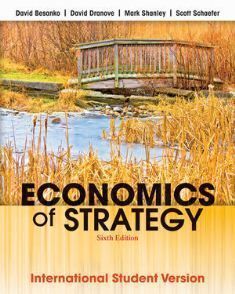書籍分類

Economics of Strategy 5/e
作者:David Besanko, David Dranove, Scott Schaefer, Mark Shanley
原價:NT$ 1,300
ISBN:9780470484838
版次:5
年份:2010
出版商:John Wiley
版次:5
年份:2010
出版商:John Wiley
內容介紹 目錄 作者介紹
- Description
Today's global recession, strong management of firms and organizations are of the utmost importance. Best-selling Economics of Strategy focuses on the key economic concepts students must master in order to develop a sound business strategy. Bringing economic theory and strategic analysis to life in an engaging and uniquely modern way, Besanko et al. have collaborated for over 15 years to build an introductory business course that combines basic concepts from economic theory of the firm and industrial organization with ideas from modern strategy literature.
The newly revised 5 edition offers more real-world applications to make materials studied in undergraduate Managerial Economics, Business Strategy, and Industrial Organization courses relevant. Armed with general principles, today's students—tomorrow's future managers—will be prepared to adjust their firms' business strategies to the demands of the ever-changing environment.




